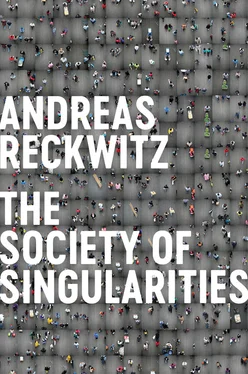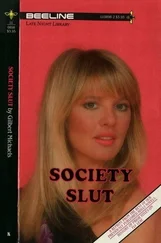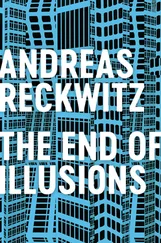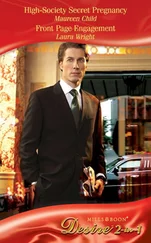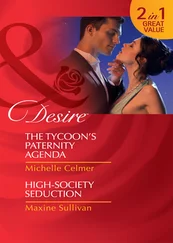3 Culture and Culturalization
The social logic of singularities is closely linked to the dimension of the social that has traditionally been referred to as culture . Indeed, one could maintain that, if we proceed from the distinction between the logic of the general and that of singularities, it will be possible to shed new and informative light on “culture” – an ambiguous academic and political concept that is now encrusted in a layer of patina – and the cultural dimension of society. Conversely, recourse to the concept of culture makes it possible to anchor our analysis of singularities in social theory. The crucial point is this: at its core, culture is composed of singularities. The cultural sphere of a society is formed from social entities that are recognized to be unique – singular objects, subjects, places, events, and collectives – together with the affiliated practices of observation, evaluation, production, and appropriation. The logic of the particular is related to culture just as the logic of the general is related to formal rationality. Whereas the social logic of the general is expressed through a social process of rationalization, the social logic of singularities is expressed through a social process of culturalization. Rationalization and culturalization are the two opposing forms of socialization.
Culture as a Sphere of Valorization and De-valorization
The concept of culturalization may seem alien at first. Haven’t we learned that everything is culture, that all things social are formed and coded by contexts of meaning that lend them direction and significance? How, then, can one speak of cultural ization ? Such a concept of enhancement and intensification ultimately seems to require certain precultural elements that are then abandoned in a second step toward a specific cultural formation.
Culture is one of the most dazzling concepts of the human sciences; at the same time, it has also been central to the self-perception of modernity from its very beginning. 1In the nineteenth century, culture was at first understood as a select, “cultivated” (that is, normatively desirable) form of life that strives for harmonious perfection (the normative concept of culture). Over time, the concept was then restricted to a social subsystem that essentially encompassed the artistic and intellectual spheres (the differentiation-theoretical concept of culture). Conversely, the concept of culture would also be radically opened up and applied to all ways of life in all of their diversity (the holistic concept of culture) and ultimately – in a more theoretically challenging turn – related to the symbolic and meaningful dimension of the social (the meaning-oriented concept of culture). In this case, culture designates the orders of knowledge and systems of classification against the backdrop of which social practices first become conceivable. 2
For our context, however, none of these four concepts of culture is really suitable. They are either too broad or too narrow. From the perspective of the holistic and meaning-oriented concepts of culture, every social phenomenon can be understood as cultural, whereas the normative and differentiation-theoretical concepts of culture restrict what counts as culture to the bourgeois high culture of modernity and its products. What are the alternatives? I propose drawing a distinction between two levels: a weak or broad concept of culture , which denotes the cultural as a whole, and a strong or specific concept of culture , which pertains to objects or other entities to which society attributes particular qualities . What is meant by culture in the broad sense is thus all social and cultural practices and their orders of knowledge. In the specific sense, however, culture encompasses only those social entities (objects, subjects, spaces, temporalities, collectives) that have a particular feature: society ascribes to them not (or not only) utility or a function, but rather value . In addition to this character of value, the cultural entities in question also have a second significant feature: to a considerable extent, they produce (positive) affects. These cultural entities thus form a cultural sphere in which social processes of valorization and affecting take place.
According to the broad or weak concept of culture, the cultural designates the level of socially relevant contexts of meaning as a whole. 3All social practices contain implicit orders of knowledge, which classify the phenomena of the world in a particular way and therefore assign a specific meaning to them. They regulate how the world is represented and which practices appear possible, urgent, and sensible in it. In this sense, the social is always cultural; social practices are always cultural practices. From the perspective of this broad understanding of culture, moreover, social rationalization and the social logic of the general can also be regarded as cultural. Technical, cognitive, and normative rationalization depends on culturally specific criteria such as efficiency, equality, or truth. This involves a cultural process of enacting rationality , which constantly distinguishes the rational from the non-rational.
In the sea of the cultural in this broad sense, culture in the strong and specific sense forms distinct islands. It denotes a specific realm of the socio-cultural world, namely the cultural sphere in which objects and other entities of particular quality circulate. By asking what this qualification consists of, we can now draw a connection to our thoughts about the social logic of singularities and simultaneously build a bridge to the traditional concept of culture. This bridge can be erected on the level of the concept of value . My assumption is this: precisely those social entities (that is, those objects, subjects, spaces, temporalities, and collectives) that are socially singularized attain the qualities necessary for becoming entities of culture in this social context. Singular social entities become cultural entities , and the process of their singularization is also a process of their culturalization . Cultural entities are fabricated within the framework of all four practices of singularization discussed above: the practices of observation, evaluation/valorization, production, and appropriation/experience. From the perspective of cultural quality, however, one of these practices has a leading role: valorization, which is the fundamental process of assigning or denying value and thus certifies what counts as unique and as a cultural entity in general (and also what does not count and thus exists outside of the singular and outside of culture).
We have already seen the extent to which the specific practices of valorization, which are typical of the social logic of singularities, differ from the classifying and ranking forms of evaluation that characterize rationalism and the social logic of the general. Whereas, in the latter, the entities of the social are classified according to their utility and function, in the former they are attributed value in the strict sense – an intrinsic value that does not derive from anything else. It is a matter of things, objects, people, places, events, and collectives being recognized as valuable , and it is their acknowledged inherent complexity that makes them seem to be such. As bearers of value, they are not a means to an end; in a sense, they are ends in themselves. 4Together, cultural entities thus form a sphere of the valuable in which, conversely, that which lacks value is rejected. The cultural sphere is therefore the sphere in which these values circulate .
It may come as a surprise that, in the wake of the social-constructivist turn and its radical expansion of the cultural, I would venture to advocate such a limited concept of culture, and one based on values at that. Wouldn’t this be equivalent to turning back the clock to a restricted and normative concept of culture? I am of the opinion that the expansion of the cultural by theorists since the 1970s has undoubtedly been beneficial, for it means that more and more phenomena have been recognized as being culturally constituted and subjected to cultural-theoretical analysis. At the same time, however, this has left a noticeable gap, for it involved sacrificing the classical understanding of culture, according to which culture denotes specific qualities of the social. When the conceptual differentiation between culture and non-culture is abandoned, this has problematic consequences for a theory of modernity. I would go as far as to say that identifying modernity with a process of formal rationalization – and thus accepting a one-dimensional image of modernity as the large-scale machinery of the social logic of the general – requires losing the distinction between culture and non-culture, between the sphere of value (and affect) and the system of utility and function . By failing to distinguish between these two dimensions, one also fails to see modernity’s dual structure, which consists of both rationalization and culturalization.
Читать дальше
